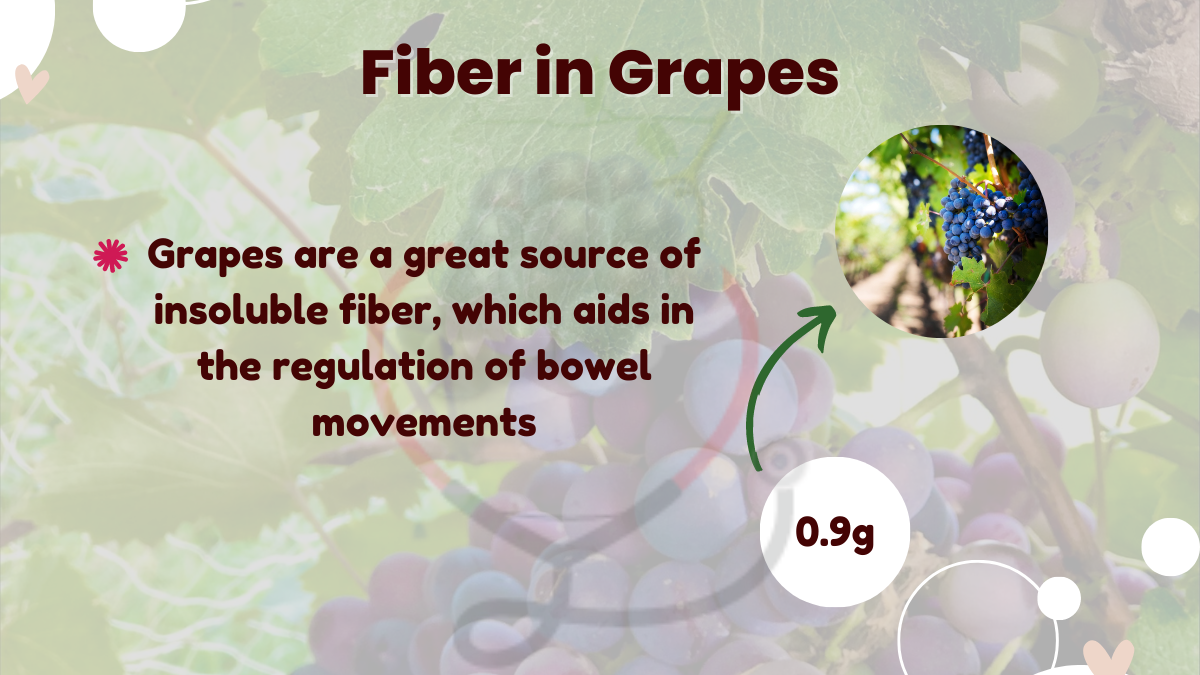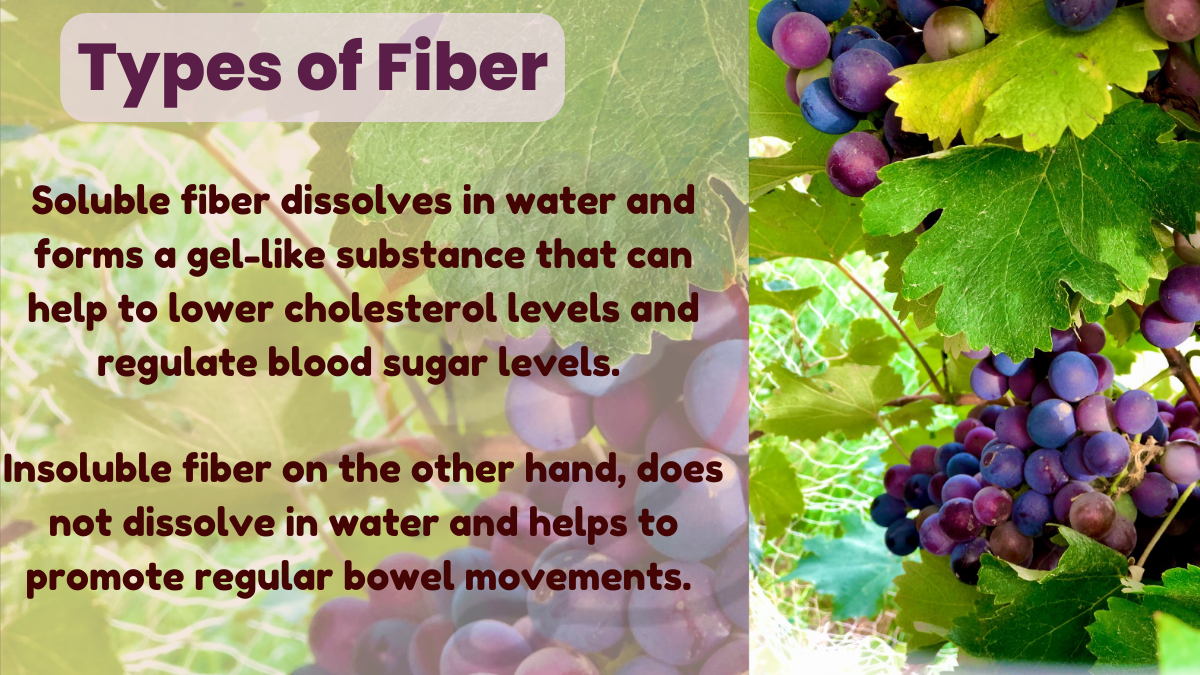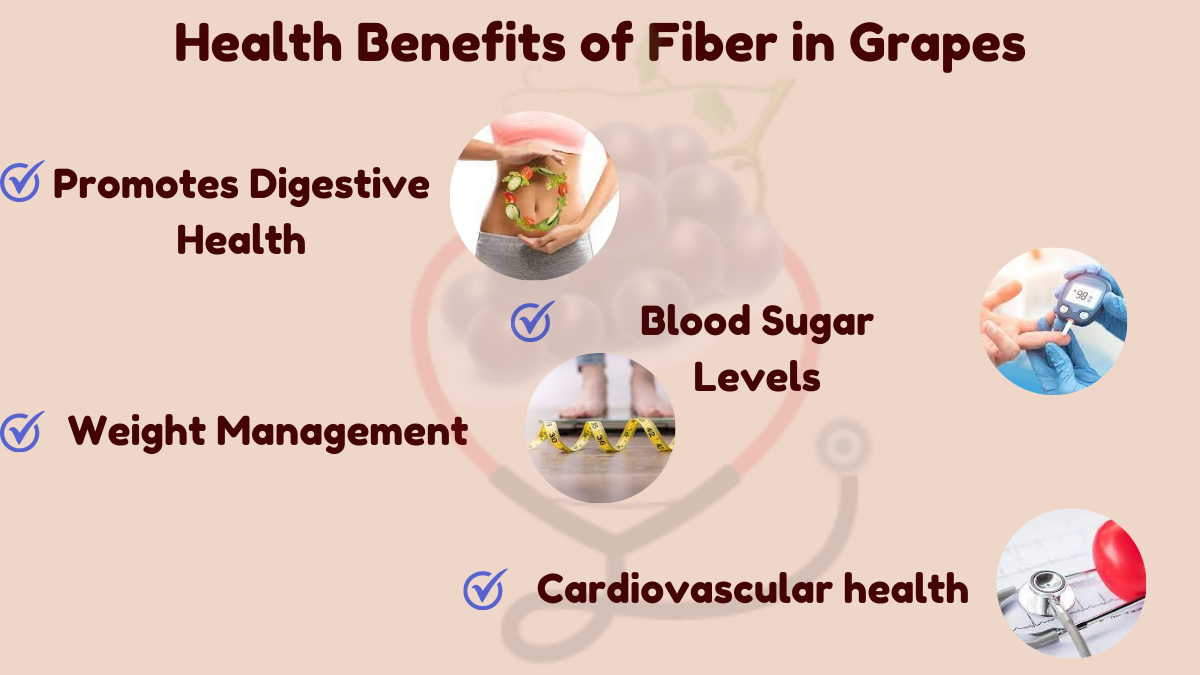Grapes are a great source of insoluble fiber, which aids in the regulation of bowel movements. [1]
Grapes contain 0.9G amount of fiber.
Grapes contain higher levels of fructose compared to other fruits, they remain a favorable option for individuals with Irritable Bowel Syndrome.

Not only are they a great addition to salads, smoothies, and desserts, but they are also packed with important nutrients, including fiber.
In this article, we’ll explore the benefits of fiber in grapes and how adding this nutritious fruit to your diet can support your overall health.
Importance of Fiber
Before diving into the benefits of fiber in grapes, it’s important to understand what fiber is and why it’s important for our health.
Fiber is a type of carbohydrate that our bodies cannot digest or absorb, so it passes through our digestive system relatively intact.
This undigested material helps to keep our digestive system healthy by promoting regular bowel movements and preventing constipation.
Types of Fiber in Grapes
There are two types of fiber, soluble and insoluble fiber.

Soluble fiber dissolves in water and forms a gel-like substance that can help to lower cholesterol levels and regulate blood sugar levels.
Insoluble fiber on the other hand, does not dissolve in water and helps to promote regular bowel movements.
Grapes contain both types of fiber, making them an excellent choice for maintaining digestive health.
Benefits of Fiber in Grapes

1: Promotes Digestive Health
The fiber in grapes can help to promote regular bowel movements and prevent constipation. [2]
This can help to reduce the risk of developing digestive problems such as diverticulitis, hemorrhoids, and inflammatory bowel disease.

2: Supports Heart Health
The soluble fiber in grapes can help to lower cholesterol levels and reduce the risk of developing heart disease.

Studies have shown [3] that consuming a diet high in fiber can reduce the risk of heart disease by up to 40%.
3: Helps with Weight Management
Fiber-rich foods like grapes can help to promote feelings of fullness and reduce overall calorie intake. [4]

This can help to support weight loss goals and prevent weight gain.
4: Regulates Blood Sugar Levels
Soluble fiber in grapes can help to regulate blood sugar levels and prevent blood sugar spikes after eating. [5]

Incorporating grapes into your diet can provide a range of health benefits, including supporting digestive health, heart health, weight management, and blood sugar regulation.
The fiber in grapes is just one of the many important nutrients found in this fruit, making it an excellent choice for overall health and wellbeing.
FAQs
Can I eat grapes if I have diabetes?
Yes, grapes can be a part of a healthy diet for individuals with diabetes. However, it’s important to monitor portion sizes and consume grapes in moderation to avoid spikes in blood sugar levels.
Are seedless grapes less nutritious than grapes with seeds?
No, seedless grapes are just as nutritious as grapes with seeds. The absence of seeds does not affect the nutritional content of the fruit.
How many grapes should I eat per day?
The recommended serving size of grapes is about 1 cup, which is roughly 32 grapes. However, the appropriate amount of grapes to consume may vary depending on individual needs and dietary goals.
Can grapes be harmful to some people?
While grapes are generally considered safe for consumption, some individuals may have allergies or sensitivities to this fruit. Additionally, grapes contain natural sugars, so individuals with diabetes or other conditions that require monitoring sugar intake should consume grapes in moderation.
Are there any risks associated with consuming too much fiber?
While fiber is an important nutrient for digestive health, consuming too much fiber can cause digestive discomfort and bloating.

